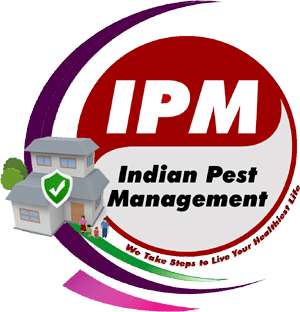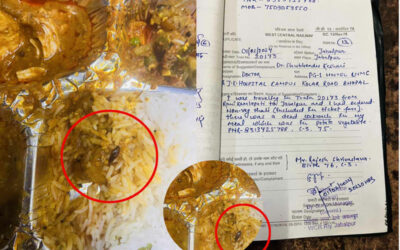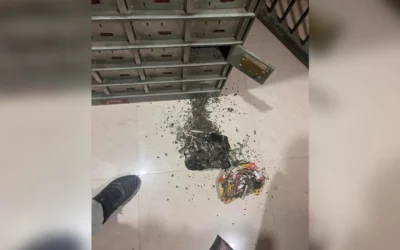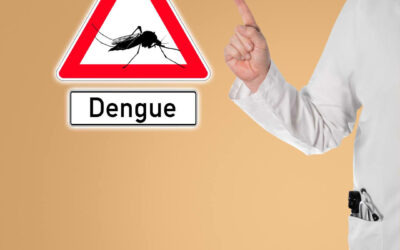As a food company owner or manager, you know that ensuring the safety and quality of your products is of the utmost importance. One of the most significant threats to food safety is pests. Pests can cause contamination, damage your products, and lead to costly recalls. That’s why it’s crucial to have a thorough pest control pre-inspection before any issues arise. In this article, I will discuss the importance of pest control pre-inspections for food companies, what to expect during an inspection, common pest control issues, and strategies for preventing pest infestations.
Introduction to Pest Control Pre-Inspections for Food Companies
A pest control pre-inspection is an assessment conducted by a professional pest control company to identify potential pest problems in your food company. The pre-inspection involves a thorough examination of your facilities, including storage areas, production areas, and employee break rooms. The pest control company will look for signs of pests, such as droppings, gnaw marks, and nests. They will also assess the risk factors that attract pests, such as food waste, standing water, and cracks in the walls or floors.
Importance of Pest Control Pre-Inspections
Pest control pre-inspections are essential for food companies for several reasons. First and foremost, they help prevent pest infestations. By identifying potential pest problems before they become an issue, you can take proactive steps to prevent infestations from occurring. This can save you time and money in the long run by avoiding costly treatments and repairs.
Secondly, pest control pre-inspections can help you comply with regulations. The Food Safety and Standards Authority of India (FSSAI) requires food companies to have a preventive control plan in place, which includes pest control. By having a pest control pre-inspection, you can ensure that your facilities meet the requirements of the FSSAI and other regulations.
Finally, pest control pre-inspections can help protect your brand reputation. If pests are found in your products, it can damage your company’s reputation and lead to a loss of customers. By taking proactive steps to prevent pest infestations, you can maintain the quality and safety of your products and protect your brand reputation.
Understanding the Food Safety and Standards Authority of India (FSSAI)
The Food Safety and Standards Authority of India (FSSAI) is a statute that was passed in 2006 and signed into law with the intention of ensuring that the food supply in India is safe. This statute is a consolidation of statutes related to food safety and regulation in India. The law mandates that businesses that deal with food must have a preventative control strategy that also addresses the issue of pest management. The preventive control plan has to identify potential hazards and then detail the activities that can be taken to eliminate or reduce the impact of such hazards. In addition to that, the strategy ought to include methods for monitoring and corrective action, as well as verification.
In addition, the FSSAI mandates that food businesses have a documented food safety strategy and set up preventative controls. These controls must include the monitoring of temperature and humidity levels, as well as the prevention of cross-contamination. By adhering to the requirements of the FSSAI, food enterprises can safeguard their customers while also ensuring the quality and safety of the items they sell.
It is the responsibility of the Food Safety and Standards Authority of India and the Inspection Service to safeguard and promote public health through the regulation and monitoring of food safety.
What to Expect During a Pest Control Pre-Inspection
During a pest control pre-inspection, the pest control company will conduct a thorough assessment of your facilities. They will look for signs of pests, entry points, such as droppings, gnaw marks, and nests. They will also assess the risk factors that attract pests, such as food waste, standing water, and cracks in the walls or floors.
The pest control company will also look at your pest control plan to ensure that it is up to date and effective. They may recommend changes to your plan or suggest additional measures to prevent pest infestations.
After the pre-inspection, the pest control company will provide you with a report that outlines their findings and recommendations. You can use this report to make necessary changes to your pest control plan and take proactive steps to prevent pest infestations.
Preparing for a Pest Control Pre-Inspection
Before a pest control pre-inspection, you should prepare your facilities to ensure that they are clean and free of clutter. Remove any unnecessary items that could provide hiding places for pests, such as cardboard boxes or piles of paper. Clean up any food waste or spills and ensure that your facilities are well-lit.
You should also ensure that your pest control plan is up to date and effective. Review your plan and make any necessary changes before the pre-inspection. Ensure that all employees are aware of the plan and their responsibilities.
Common Pest Control Issues in Food Companies
Food companies can face a variety of pests, including rodents, insects, and birds. Rodents, such as mice and rats, are attracted to food sources and can cause significant damage to products and facilities. Insects, such as cockroaches and flies, can contaminate products and spread diseases. Birds, such as pigeons, can carry diseases and contaminate products with their droppings.
Another common pest control issue in food companies is the presence of stored product pests. These are insects that infest stored food products, such as flour, rice, and grains. Stored product pests can cause significant damage to products and can be challenging to control.
Strategies for Preventing Pest Infestations in Food Companies
There are several strategies that food companies can use to prevent pest infestations. The first is to ensure that your facilities are clean and free of clutter. Remove any unnecessary items that could provide hiding places for pests and clean up any food waste or spills.
Secondly, seal any cracks or holes in the walls or floors to prevent pests from entering your facilities. Install door sweeps and weather stripping to keep pests out.
Thirdly, use proper storage techniques for your products. Store products off the ground and away from walls to prevent pests from accessing them. Use sealed containers and inspect your products regularly for signs of infestation.
Finally, work with a professional pest control company to develop an effective pest control plan. The plan should include monitoring, baiting, and trapping techniques, as well as preventative measures, such as sealing cracks and holes.
Benefits of Regular Pest Control Pre-Inspections
Regular pest control pre-inspections can provide several benefits for food companies. First and foremost, they can help prevent pest infestations by identifying potential problems before they become an issue. This can save you time and money in the long run by avoiding costly treatments and repairs.
Secondly, regular pre-inspections can help you comply with regulations. By ensuring that your facilities meet the requirements of the FSSAI and other regulations, you can avoid fines and legal issues.
Finally, regular pre-inspections can help protect your brand reputation. By taking proactive steps to prevent pest infestations, you can maintain the quality and safety of your products and protect your brand reputation.
Hiring a Professional Pest Control Company for Pre-Inspections
When hiring a professional pest control company for pre-inspections, it is essential to choose a company with experience in the food industry. Look for a company that is licensed and insured and has a good reputation in the industry. Ask for references and check their credentials before hiring them.
You should also ensure that the pest control company uses non-toxic and environmentally friendly methods to control pests. This will ensure that your products are safe for consumption and that you are complying with regulations.
Conclusion
In conclusion, pest control pre-inspections are essential for food companies to prevent pest infestations, comply with regulations, and protect their brand reputation. By understanding the importance of pre-inspections, what to expect during an inspection, and common pest control issues, food companies can take proactive steps to prevent pest infestations. Strategies for preventing pest infestations include keeping facilities clean and free of clutter, sealing cracks and holes, using proper storage techniques, and working with a professional pest control company. Regular pre-inspections can provide several benefits for food companies, including preventing infestations, complying with regulations, and protecting brand reputation.






